It’s somewhat ironic that a sport whose participants must have a disability affecting the arms and legs is nicknamed “murderball.” But for Joe Delagrave, interim head coach of the USA wheelchair rugby national team, the label pales in comparison to what he has experienced getting to the team — and what that journey has done for his faith.
Delagrave played basketball, football and baseball in high school and Division 2 football in college. Then his world turned upside down.
“When you go through something that’s so tragic like a spinal cord injury and breaking your neck, you don’t understand why,” he admitted. “A lot of times we want to understand why … and how and where and what, and what’s the endgame gonna look like.”
For Delagrave, the endgame has included becoming part of a multiple gold medal-winning team, finding others who also wrestle with questions, developing leadership skills and growing closer to the Lord.
But it wasn’t easy to get there.
Finding a community
“I started playing [wheelchair rugby] in 2006, about two years after my accident,” he said. “I really wanted to compete again, and I really wanted to get back in shape and be healthy. That’s what led me to this sport.”
Delagrave loved the physical workouts, social interaction and sense of belonging — a “support group on wheels” — so he kept going back to practice.
“It’s a community that I think has a lot of questions about faith,” he acknowledged. “I think that’s the same for anyone who has gone through something so tragic. It’s the old adage of, ‘Why do bad things happen to good people?’
“And there are a lot of things that have happened in our community.”
When Delagrave first made the team in 2008, he found allies in faith, as well as some still in the why stage. Though not shy about sharing his faith, Delagrave works hard to allow space for his teammates to discuss the whys.
Delagrave was team captain from 2013 to 2015, and later recognized he was sometimes an immature leader. When he didn’t make the 2016 Rio Paralympics team, he knew he needed to work on more than rugby skills.
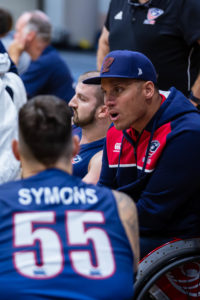
“I thought for sure I should have made the team,” he recalled. “The decision was their decision; it was something I couldn’t control. But going through that heartbreak and heartache … I was going to validate all I was with going to Rio and winning the gold medal. That would validate me as a leader, validate me as a father, validate me as an athlete, validate me as a man with a disability. As a Paralympic rugby player, I mean something to someone.”
During that devastating time, Delagrave said his attitude changed. He learned he wants “to lead with a servant’s heart. The Bible says a lot about checking your heart and understanding your heart to make sure it’s aligned, along with your head.”
‘Three pillars’
Delagrave’s typical morning routine is to make a cup of coffee and get into the Word. He also participates in regular Bible study with friends, but when working with the team, he said he’s “pulled in 100 different directions” and has to make a concerted effort to maintain those disciplines.
“There’s three pillars there — physical self-care, mental self-care and spiritual self-care,” Delagrave asserted. “All three of those need to be dialed in to be successful. That’s something I strive to do and set out to do and fail at it at times.
“I set the bar at 15 minutes — what can five minutes praying, five minutes reading and five minutes worshipping do? That’s not a lot of time, but at the same time hopefully I can build on that. An hour a day spent in prayer, reading and worship is 5% of the day.
“An hour seems like a lot [but] 5% seems like a little,” Delagrave said. “It’s kind of a trick for your mind, and you go, ‘Wait a second. This isn’t a lot of time and this is valuable and needed.’”
From 2017 to 2021, Delagrave was again team captain, then in 2022 he became interim head coach. The journey has helped him realize Whose he is.
“My life verse since my accident has been Proverbs 3:5–6 — it’s on my email signature; I have it on my USA shoes. It’s something that the Lord has given me throughout my life,” Delagrave noted. “It just says, ‘Trust in the Lord with all your heart.’’’
That one line is powerful, he said, adding more of the verse: “And then, ‘lean not on your own understanding.’”
‘Whose we are’
“Men wrap our identities into who we are rather than Whose we are,” Delagrave acknowledged. “For me, it was wrapped up in this identity of, ‘I’m a Paralympic rugby player,’ which isn’t necessarily bad.
“But when it becomes your idol and it becomes what you are focused on, it can be detrimental to you, especially when it gets ripped away.
“I don’t need to be a rugby player,” Delagrave declared. “I love it and I desire it and it’s God-given for me to be an athlete, and I love being able to get good at the sport. But I don’t need it. It’s not my identity. It’s not where I receive my validation from.”
To learn more about the US Paralympic Wheelchair Rugby team visit USA Wheelchair Rugby on Facebook. To watch their most recent tournament — the Tri-Nations Invitational, held at Lakeshore Foundation in Birmingham July 20–23 — visit Lakeshore Foundation on YouTube.

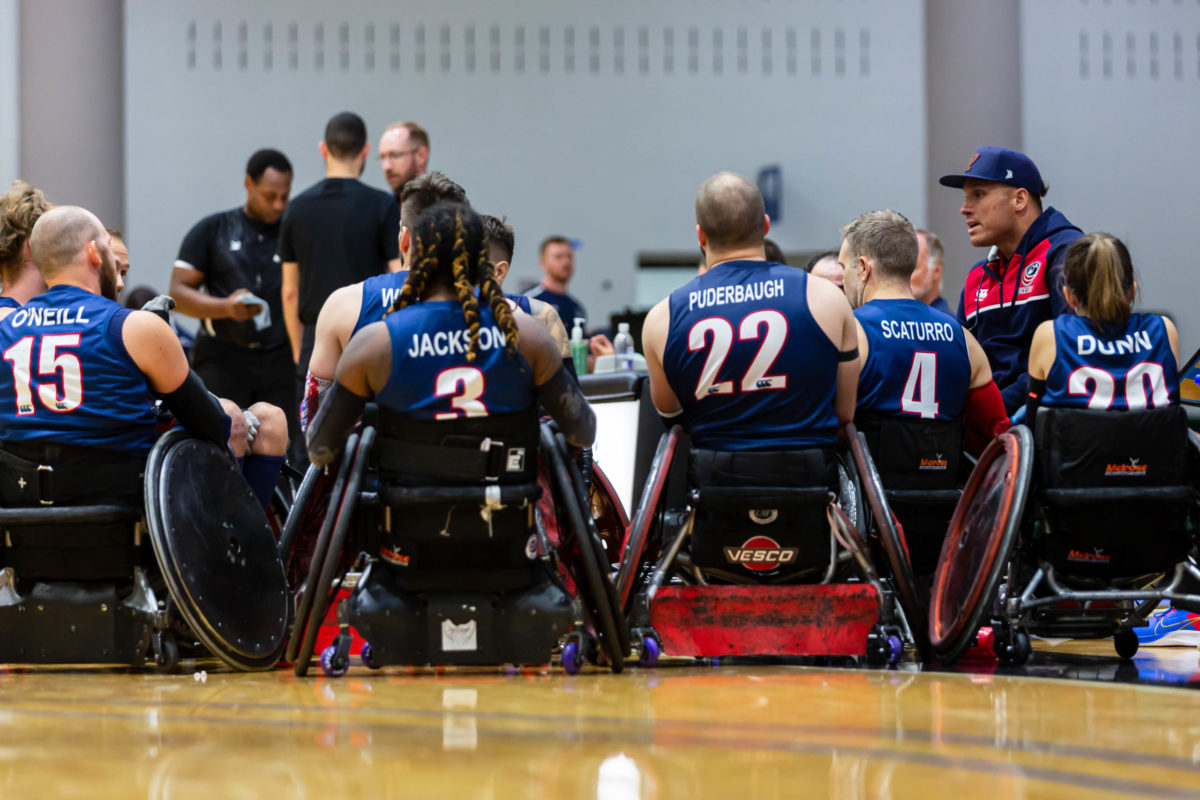
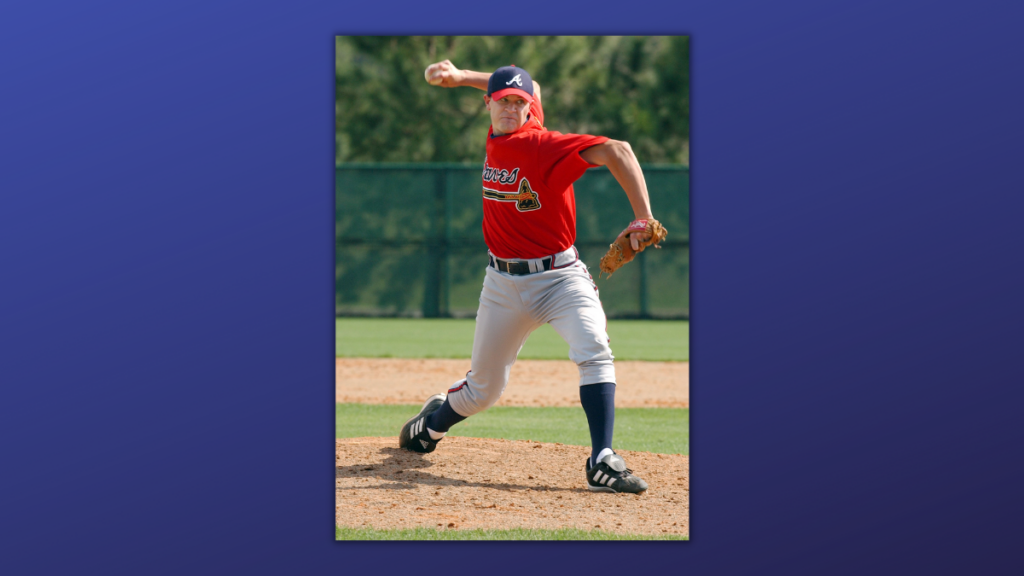

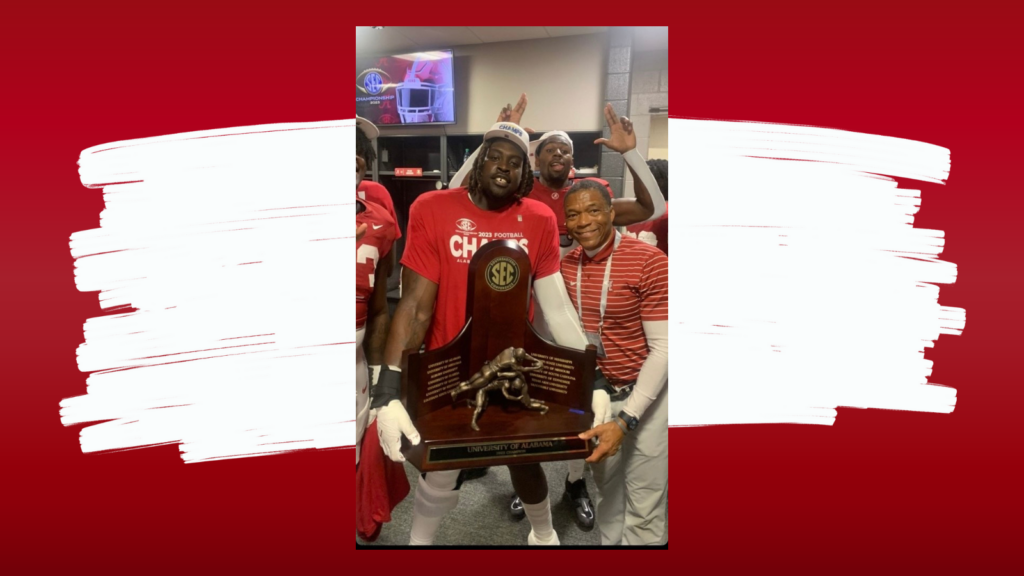
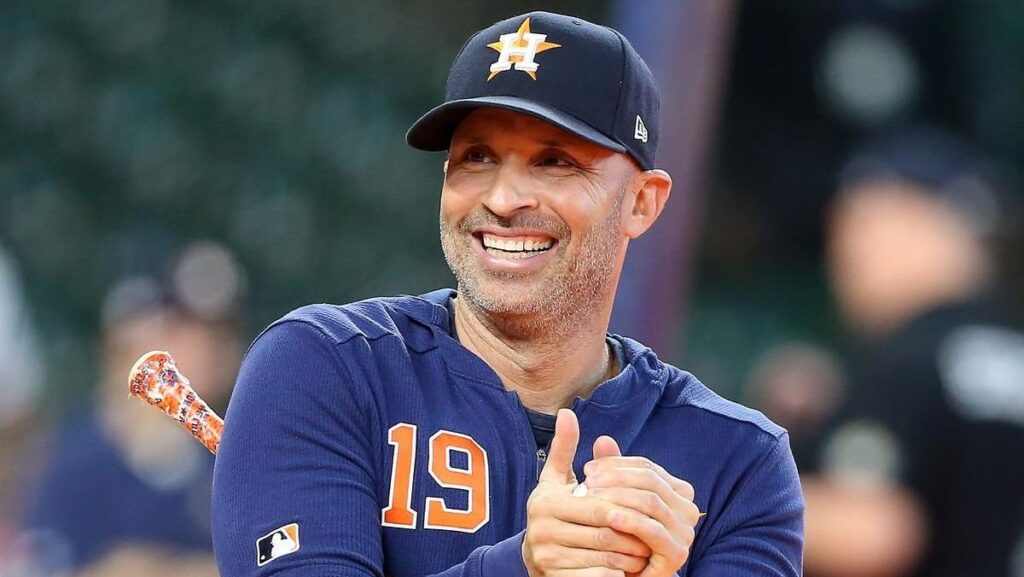
Share with others: